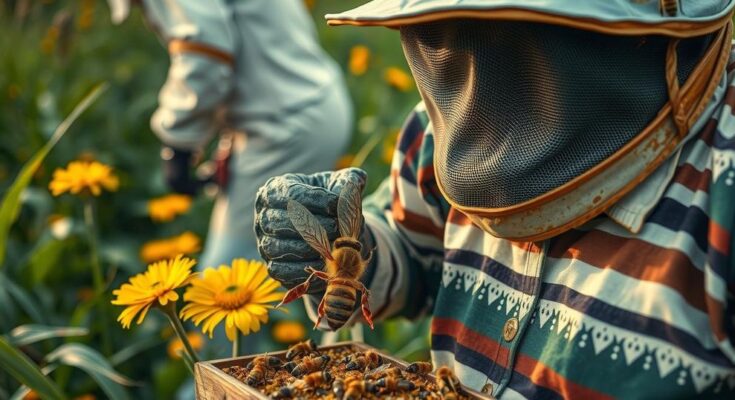Beekeeping in Kenya offers communities a climate-resilient livelihood option as traditional agricultural practices fail amid climate change. By promoting this alternative, local populations can create new income streams while supporting ecological balance through increased pollination. Conservation efforts in arid regions focus on integrating beekeeping to enhance both economic stability and environmental sustainability.
In response to the challenges posed by climate change, particularly in dryland communities, beekeeping has emerged as a viable solution for sustainable livelihoods in Kenya. The U.N. Environment Program identifies these regions as being profoundly affected by global warming, where erratic weather patterns jeopardize traditional agricultural practices. Conservation experts are now guiding communities towards adopting climate-resilient activities, such as beekeeping, to enhance both their economic stability and environmental sustainability. This initiative not only fosters an alternative source of income but also promotes biodiversity through pollination, benefiting both local ecosystems and food security.
In Garsen, Kenya, local initiatives are underway to facilitate the transition to sustainable livelihoods through beekeeping. By employing this practice, communities can diversify their income sources while also contributing to important ecological processes. Furthermore, beekeeping presents a relatively low barrier to entry for local populations, as it requires fewer resources compared to traditional farming and animal husbandry. The initiative has gained traction among residents, many of whom have witnessed promising results in both honey production and overall community resilience against climate-related shocks.
The impact of climate change on traditional livelihoods in Kenya is severe, particularly for populations residing in dryland areas. Frequent droughts and floods have disrupted conventional agricultural practices, making it increasingly difficult for communities to sustain themselves through farming and livestock rearing. Adopting alternative livelihoods becomes essential in these contexts, and beekeeping represents a method that not only supports economic diversification but also empowers communities to adapt to the unpredictable climate. This practice encourages sustainable land use and enhances ecological stability, making it a critical component of climate adaptation strategies in vulnerable regions.
In conclusion, beekeeping serves as an effective response to the detrimental effects of climate change on rural livelihoods in Kenya. By promoting this sustainable practice, communities can foster economic resilience while also enhancing local biodiversity. The shift towards beekeeping indicates a broader trend towards innovative and adaptive strategies for confronting climate challenges in the face of global warming.
Original Source: www.voanews.com




